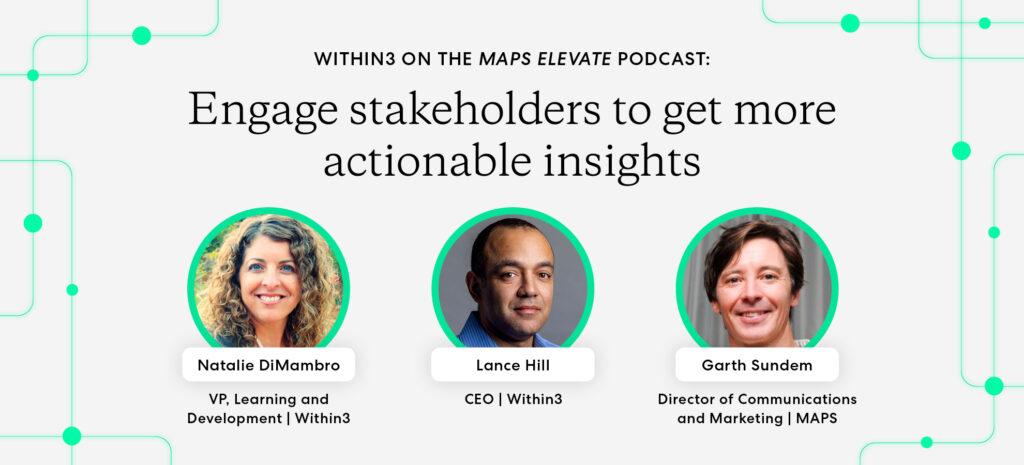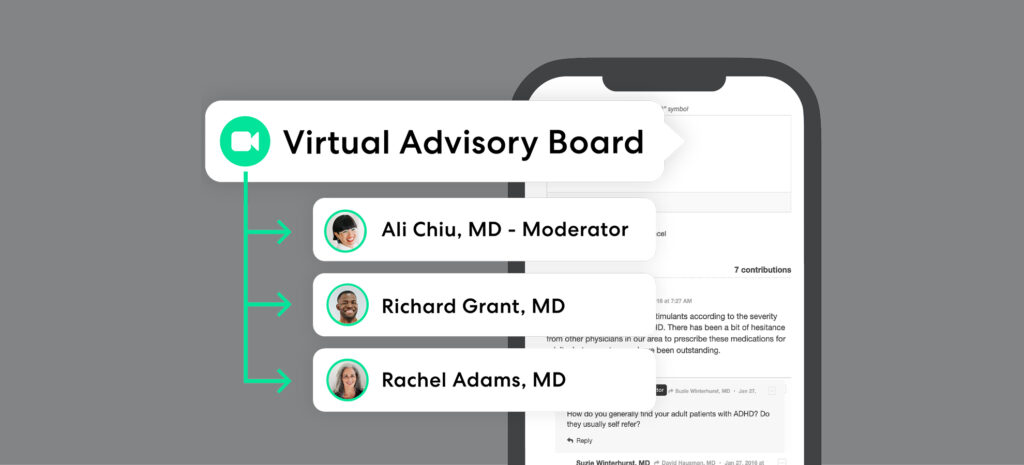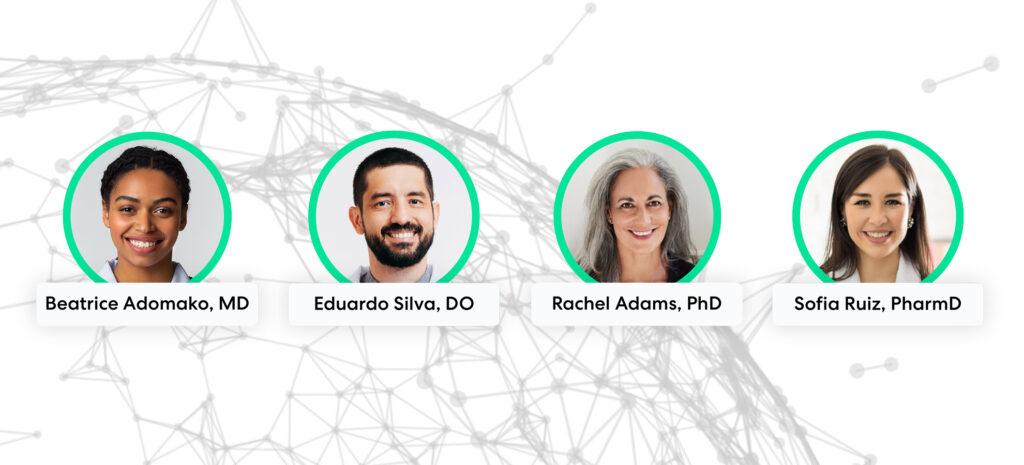Emerging technology can enable better collaboration and engagement with both internal and external stakeholders for medical affairs insight generation. In a recent MAPS Elevate podcast, Within3 CEO Lance Hill and VP of Learning and Development Natalie DiMambro joined MAPS’ Garth Sundem to share examples of how medical affairs is increasingly turning to a hybrid communications approach, incorporating a combination of over-time and real-time engagement to get more precise dialog, bring diversity to discussions, and make better, faster decisions.
In the podcast episode, titled “How to Effectively Engage Stakeholders to Get Deeper, More Actionable Insights,” the panel discusses how more voices, more inclusion, and larger insight sample sizes paint a much more accurate picture of disease communities and other topics.
Medical affairs organizations should ask themselves if they are getting a representative sample of the population they care about actively engaged in high-quality dialogue – as opposed to the same top five to ten KOLs their competitors are also using. With technology like network analytics to identify the right experts and asynchronous collaboration to enable more frequent conversations, medical affairs teams can bring in patients as their designing clinical studies, engage payers as early as possible, and reach out to experts outside of the traditional HCP paradigm.
So how can medical affairs teams get the most out of important engagements?
“Different technologies offer the ability to have everybody’s voice [heard and included], have an equal footing, remove some of those social and kind of technological competition for airtime so that you’re getting a broader spectrum of insights coming in, not just confirmation bias from the same people you’ve been talking to probably for the last seven years,” says Hill.
DiMambro adds, “Companies are rethinking the way that they use the live part of their toolset overall. Get the data ahead of time, follow up with data afterward, put the questions online afterward, get more insight afterward. But the time should really be a two-way discussion, and everybody should have a chance to talk.”
Got 20 minutes? Listen to the full episode. Or learn more about how medical affairs is using technology to get more value from medical congress attendance.






